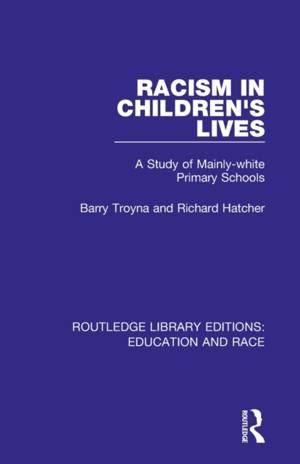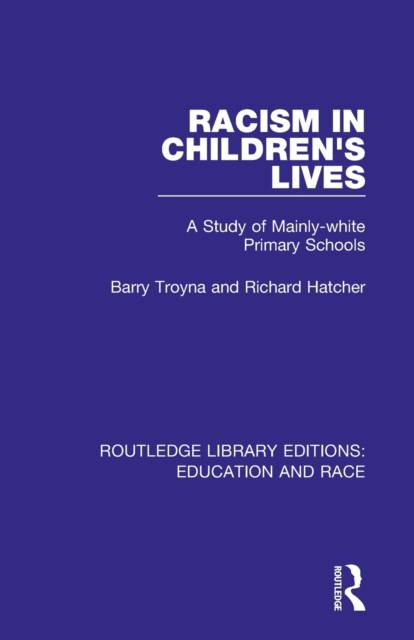
- Retrait gratuit dans votre magasin Club
- 7.000.000 titres dans notre catalogue
- Payer en toute sécurité
- Toujours un magasin près de chez vous
- Retrait gratuit dans votre magasin Club
- 7.000.0000 titres dans notre catalogue
- Payer en toute sécurité
- Toujours un magasin près de chez vous
Description
Originally published in 1992. Both teachers and the general public have traditionally been unwilling to acknowledge that concepts of 'race' might play a part in the lives of primary school children. For this book the authors spent a term in each of three mainly white primary schools. They talked to black and white pupils individually and in small groups about issues, not necessarily of 'race', which the children themselves saw as important. From these conversations they present a fascinating study of how 'race' emerges for young children as a plausible explanatory framework for incidents in their everyday lives. The final picture is both disturbing in its demonstration of how significant racism is and hopeful in showing how frequently anti-racist attitudes exist even in the thinking of children who engage in racist behaviour. A final chapter looks at how school policy can combat racism and build on these positive elements.
Spécifications
Parties prenantes
- Auteur(s) :
- Editeur:
Contenu
- Nombre de pages :
- 232
- Langue:
- Anglais
- Collection :
Caractéristiques
- EAN:
- 9781138388079
- Date de parution :
- 25-02-20
- Format:
- Livre broché
- Format numérique:
- Trade paperback (VS)
- Dimensions :
- 140 mm x 216 mm
- Poids :
- 276 g

Les avis
Nous publions uniquement les avis qui respectent les conditions requises. Consultez nos conditions pour les avis.






